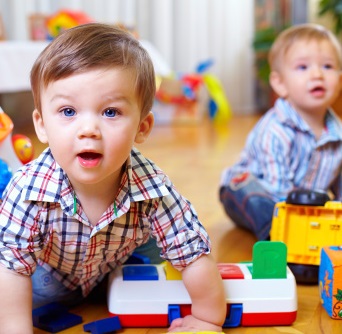 The world of children can seem like a foreign culture, featuring values and rules that may appear quite different from those that govern the adult world. Even from a young age, though, children observe adult behavior and incorporate what adults do into their own repertoires. Thus, children’s worlds are often simple reflections of what they’ve seen from the adults in their lives. According to a new study, the sponge-like ability of children to pick up on adult emotional cues, particularly those for anger, begins very early.
The world of children can seem like a foreign culture, featuring values and rules that may appear quite different from those that govern the adult world. Even from a young age, though, children observe adult behavior and incorporate what adults do into their own repertoires. Thus, children’s worlds are often simple reflections of what they’ve seen from the adults in their lives. According to a new study, the sponge-like ability of children to pick up on adult emotional cues, particularly those for anger, begins very early.
How Children Respond to Adult Emotions
Toddlers grow up quickly, morphing from babies who know little about their worlds to preschoolers with large vocabularies, strong manipulation skills, and a keen understanding of social norms. To evaluate what young toddlers know about adult emotions, researchers from the University of Washington studied 150 15-month-old toddlers. The children sat on their parents’ laps while watching an experimenter show them how to play with various toys. Each toy featured movable parts that made sounds when manipulated in specific ways, such as a box that buzzed when experimenters touched it with a wooden stick.
The children were enthusiastic observers, eagerly watching the experimenter show them how to use the toys. As the children’s interest increased, a second experimenter, known as the “emoter,” entered the room. The emoter loudly and angrily complained, calling the toys annoying, while the first experimenter continued to demonstrate the use of the toys. Thereafter, the children could play with the toys. In one group, the emoter either left the room or turned around. The other group of children had to play with the toys in the presence of the angry emoter.
The children who were allowed to play with the toys without being viewed by the emoter were enthusiastic participants, eagerly grabbing the toys and playing with them. Children who had to play with the toys in the presence of the emoter, though, were more hesitant, even though the emoter maintained a neutral expression and did not further comment on the toys. When these children did finally reach for the toys, they were less likely to repeat the steps the experimenter had demonstrated to them.
Emotion and Development
The study’s authors note that a number of factors could influence the children’s reactions. For example, children from high-conflict households might be less affected by anger, and therefore more likely to play even in the presence of an angry “emoter.” Children’s individual temperaments can also affect the way they react in the face of adult anger. Researchers, though, argue that their study shows that very young toddlers have sophisticated emotion-detection skills, and that these skills enable them to adjust their behaviors based on the reactions of adult observers.
Researchers also found a link between impulsive behavior and reactions to anger. Children who rated high on measures of impulsivity on the Early Childhood Behavior Questionnaire were more likely to ignore angry adults, suggesting that impulsive behavior begins early and might inhibit the ability to read emotional cues.
For adults and parents who find themselves frustrated by the challenging behavior of toddlers, this study serves as a powerful message. Adult anger can inhibit children’s behavior, and even very young children want to avoid the disapproval of adults, including adult strangers.
References:
Toddlers regulate behavior to avoid making adults angry. (2014, October 7). Retrieved from http://www.sciencedaily.com/releases/2014/10/141007131422.htm

The preceding article was solely written by the author named above. Any views and opinions expressed are not necessarily shared by GoodTherapy.org. Questions or concerns about the preceding article can be directed to the author or posted as a comment below.



Please fill out all required fields to submit your message.
Invalid Email Address.
Please confirm that you are human.
Leave a Comment
By commenting you acknowledge acceptance of GoodTherapy.org's Terms and Conditions of Use.